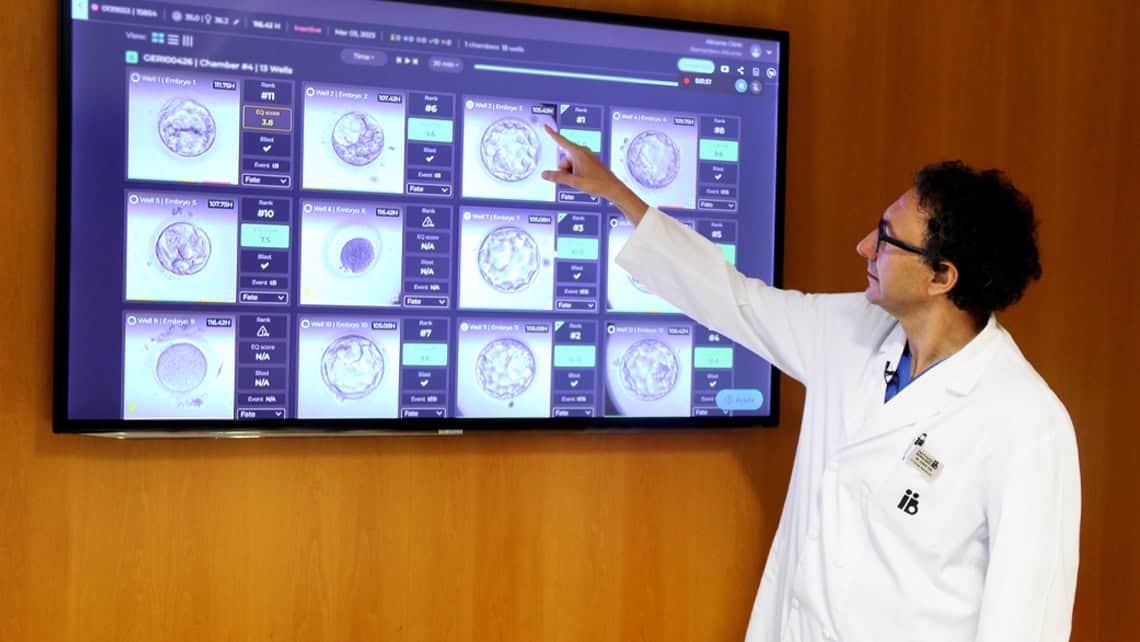Instituto Bernabeu publishes in Reproductive Biomedicine Online a study on artificial intelligence and embryo quality conducted on 6,000 embryos
October, 10th 2025

Instituto Bernabeu has carried out an international study published in the prestigious journal Reproductive Biomedicine Online, opening a new pathway in embryo assessment through artificial intelligence. The research, led by Dr. Jorge Ten, Director of the Embryology Unit, analyzed more than 6,000 embryos developed at the group’s different centers, with the aim of deciphering how certain clinical factors influence embryo development and the likelihood of achieving a live birth.
The study, titled “Decoding embryo development: the effect of clinical variables in morphokinetics and artificial intelligence quality scoring”, evaluates the performance of the AI algorithm CHLOE EQ™, developed by the technology company Fairtility, which is capable of automatically identifying all embryonic division processes and assigning an objective quality score. The results confirm that the time required for the embryo to reach the blastocyst stage is the most decisive parameter for assessing its potential, and that chromosomally normal embryos reach this stage about five hours earlier than those with genetic abnormalities.
Dr. Ten explains that this finding “will allow us to create new artificial intelligence-based models capable not only of predicting an embryo’s implantation potential but also of estimating its chromosomal normality.” The analysis also revealed that the patient’s age and the use of own or donated oocytes significantly influence the speed of embryonic development and, consequently, its final quality.
The research demonstrates that the application of artificial intelligence can become a fundamental tool to support embryologists, providing objectivity and precision in selecting embryos with the highest probability of success. This breakthrough consolidates Instituto Bernabeu’s commitment to applied research and technological innovation as key drivers of progress in reproductive medicine.
Dr. Jorge Ten, Director of the Embryology Unit at Instituto Bernabeu
